There’s more to being a firefighter than needing to stay cool in the heat of the moment.
The normal day-to-day part of the role can sometimes be forgotten amidst the drama of dealing with a burning building or rescuing someone in distress.
We spent the day with four firefighters working out of Daventry Fire Station to see what a normal day for the crew looks like.
Daventry is one of two stations that have what is known as ‘variable crewing’. It effectively means from 7.30am until 6pm on weekdays they have a full-time crew working from the station. In the evening and at weekends, an on-call crew will respond to incidents when they are needed.
On the day that we spend with the crew (Thursday May 25) it is made up of Jim Young, Kieran Davies and Seb Ward – the trio have all joined Daventry within the last three years. They are under the command of Watch Manager Duncan Timbs.
7.30am – The day begins
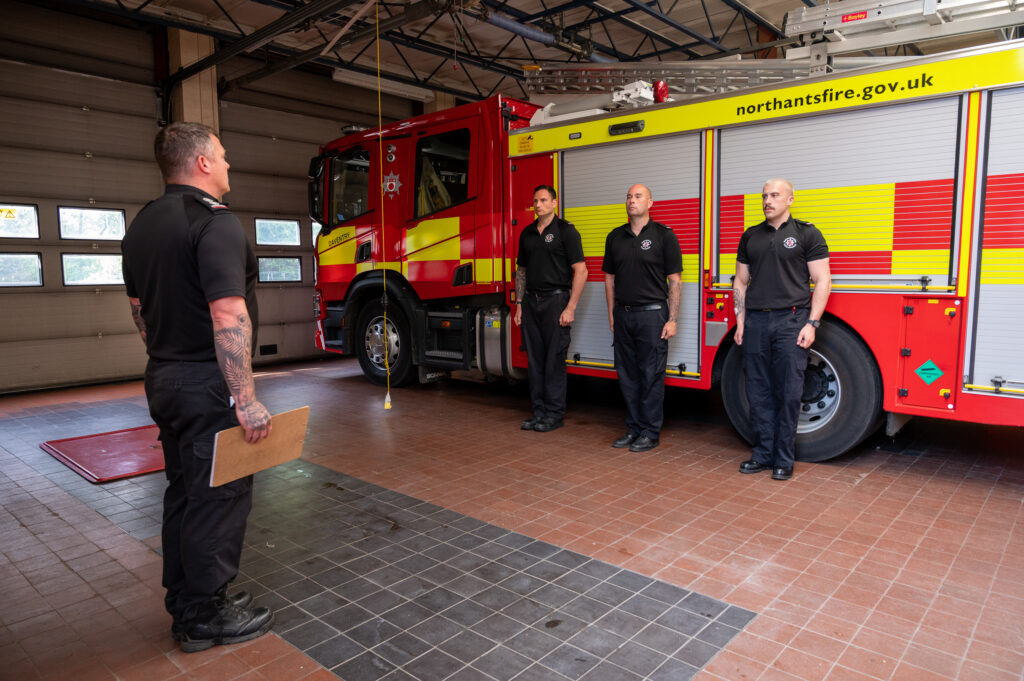
The first thing is the morning parade, where they will report into Duncan, and he will tell them anything that is important for the day ahead.
“This is also where we’ll be assigned our roles for the day such as being the driver or the Officer in Command,” Seb explains. “Duncan will check that we are all well and then we’ll be given tasks for the morning that we need to do to make sure all the equipment is working as it should be.”
Morning checks change depending on the day – varying from doing a full inventory of the fire engine to make sure all equipment is present, to testing and auditing the BA sets to ensure they are in working order.
8am – Breakfast
Having completed their morning checks, the crew gather together to have breakfast and ensure they are appropriately fuelled for the day ahead.
9am – Fire engine gets new kit
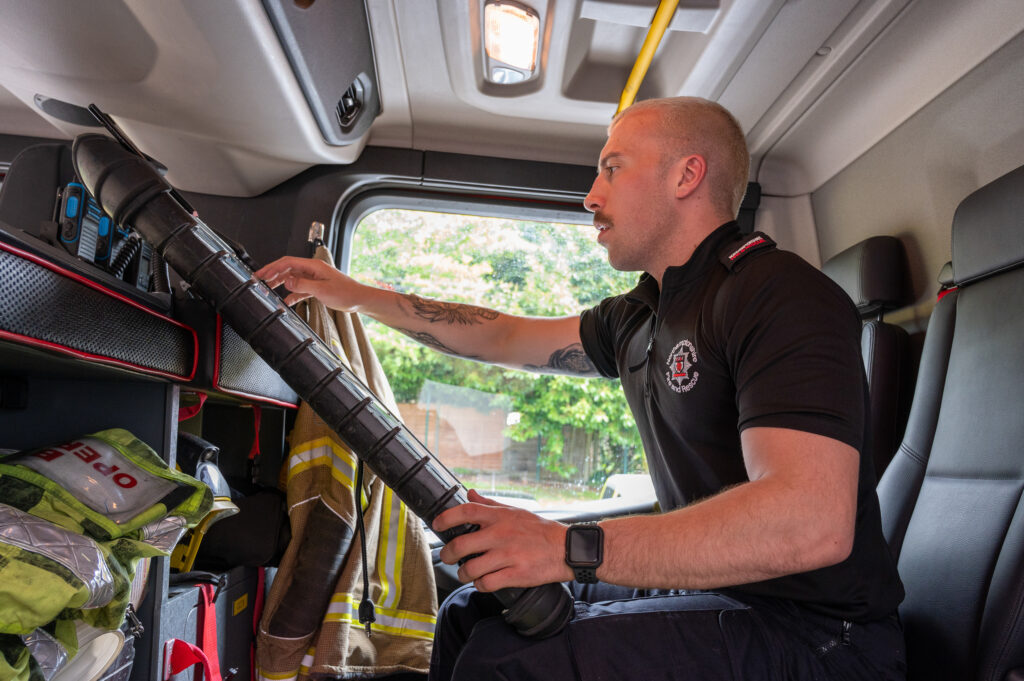
After finishing breakfast, the crew are told that the Fire Service’s risk intelligence team is coming to fit a new Mobile Data Terminal to the fire engine.
The data terminal effectively acts as a mapping device showing the incident and current location of all fire appliances attending that incident with extra information that is needed for firefighters, information on nearby hydrants for water supply; and with any Site Specific Risk Intelligence (SSRI) for particular locations that they will get called to on a shout.
10am – School visit
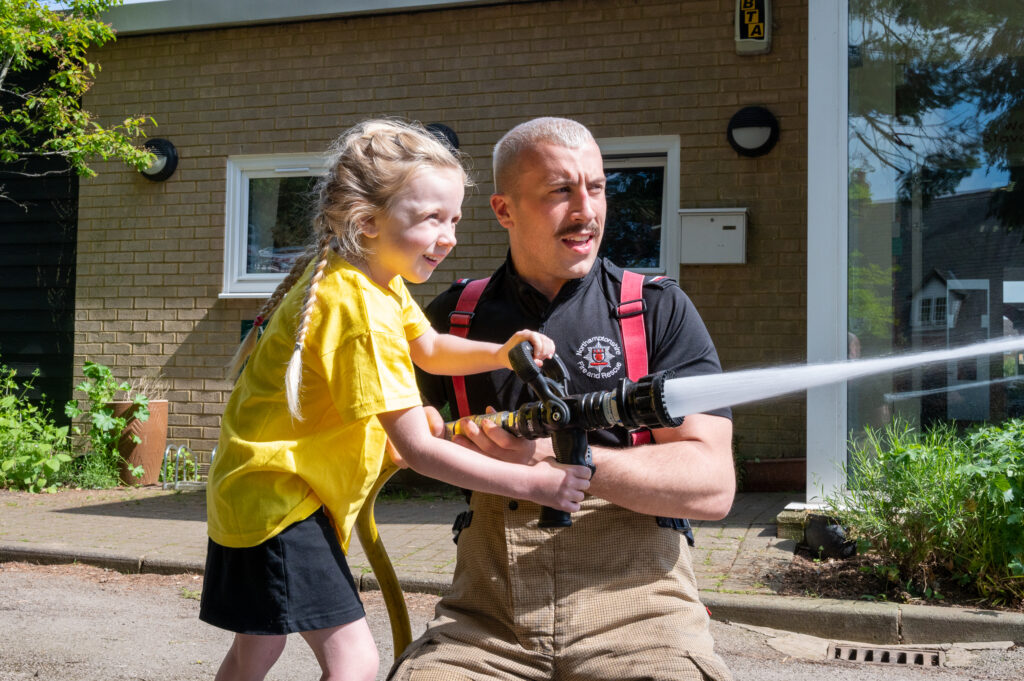
With the fire engine now re-fitted and ready for the run, the crew take part in a community visit to Staverton Church of England Primary School, roughly 10 minutes away from the station.
Duncan Timbs says: “We try and get to all the schools within our patch at least once a year. Being out and about in the community is so vital, and it also gives us a chance to tell the children about safety messages they might need to hear.”
The quartet show the children the firefighters Personal Protective Equipment (PPE) that they wear when attending incidents, explaining how it keeps them safe, and show them the equipment such as the BA set, ladder, hoses, fans and jets. They also get a chance to have a go at using one of the hose reels, and it’s clear that the children are having a great time – some have even earmarked being a firefighter as a future career.
It complements a visit from the Service’s Prevention Team the day before, who handed out key safety messages ahead of half-term.
11am – A call from the Town Ranger
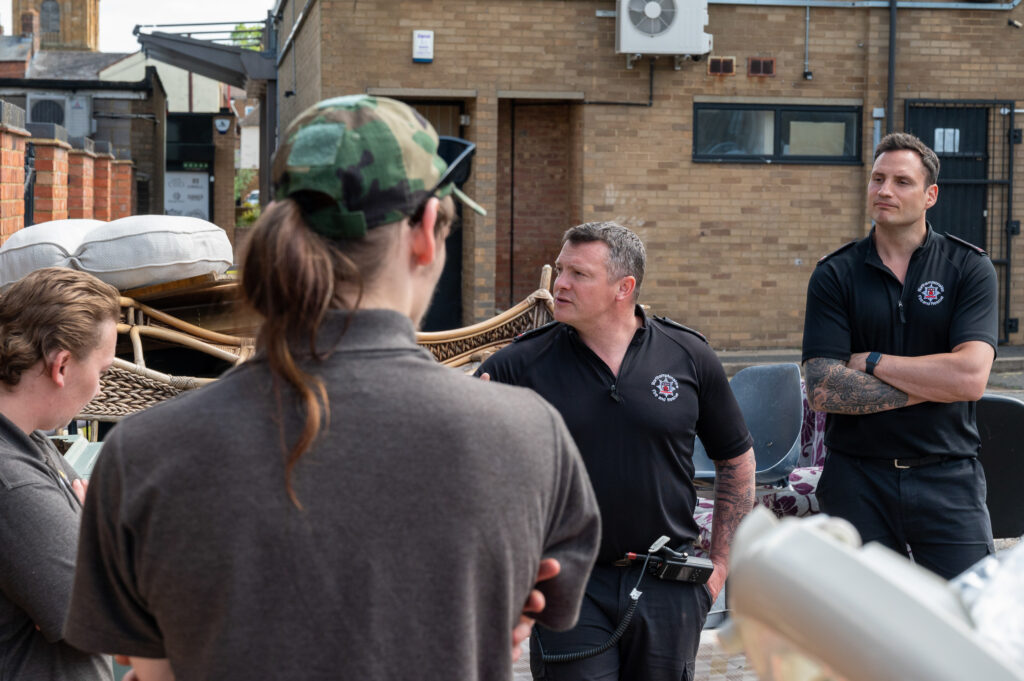
On their way back to the station, Watch Manager Duncan Timbs receives a call from the Town Ranger with reports of a number of items being fly-tipped outside a charity building in the town centre.
“This is an area we’ve been called to before,” explains Duncan as the fire engine is re-routed. “What can happen is that the larger items there can become targets for arson.”
On arrival, the Town Ranger greets Duncan and the crew head over to the charity shop to check if any of the items that have been dumped could be targets for deliberate fire setters and offer the owners advice on how they can prevent it.
The station at Daventry collaborates closely with local partner agencies around the town as part of Operation Unite, which has had a big impact in driving down anti-social behaviour and arson in the town centre.
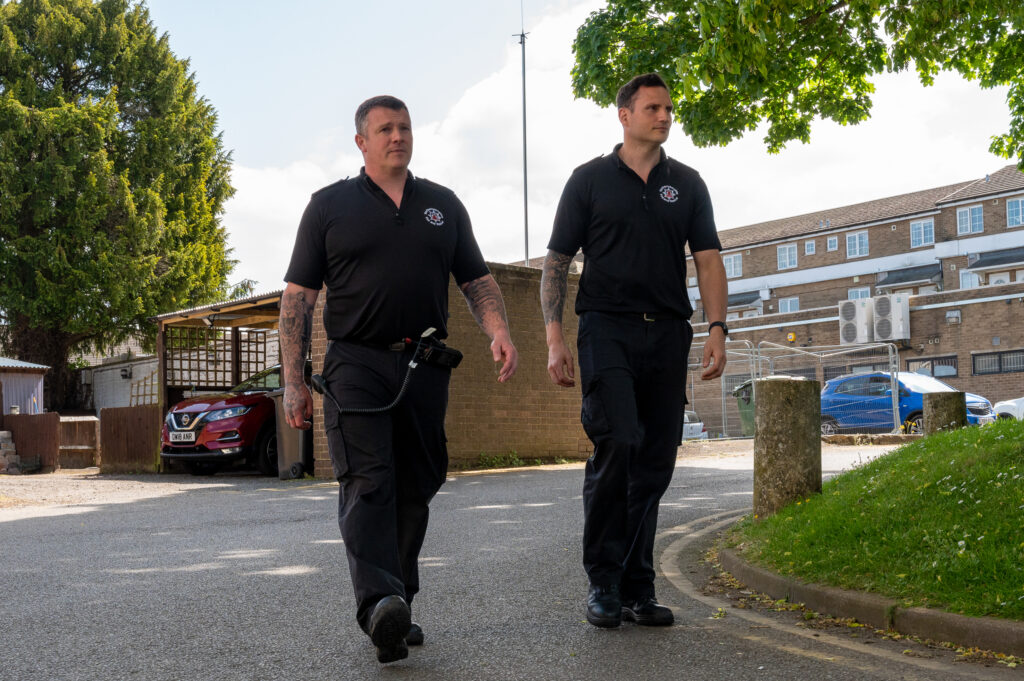
12.00pm – Ordering in equipment
After returning to the Station, the crew then spend time ordering in new equipment such as washing materials for the BA sets and new blades for the saws that are used to cut people free from crashed vehicles.
1.00pm – Lunch
The crew cook their lunch and spend time together relaxing in the Station’s common room. Again, the crew sort their own lunch out most days – but every now and then they will do a group cook or order in from a local restaurant. It can’t be too common an occurrence though if they want to pass their fitness tests!
2pm – Drill time
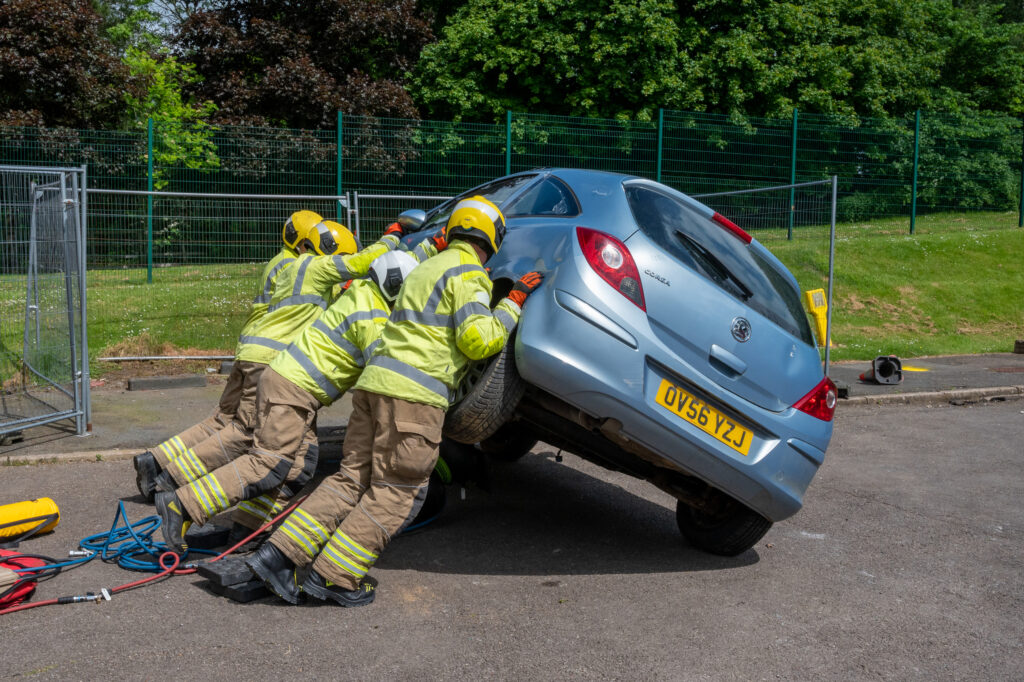
Crews will regularly take part in drills to ensure they keep their skills up to date and are sufficiently prepared to deal with a real-life scenario.
This afternoon’s drill requires them to gain access to a crashed car on its side, that will then allow them to rescue a person – or in this case a mannequin – from the wreckage of the vehicle using the proper cutting equipment.
Once finished, the crew set up the drill again so that it’s ready for the on-call crew who are arriving for their drill night at 7pm.
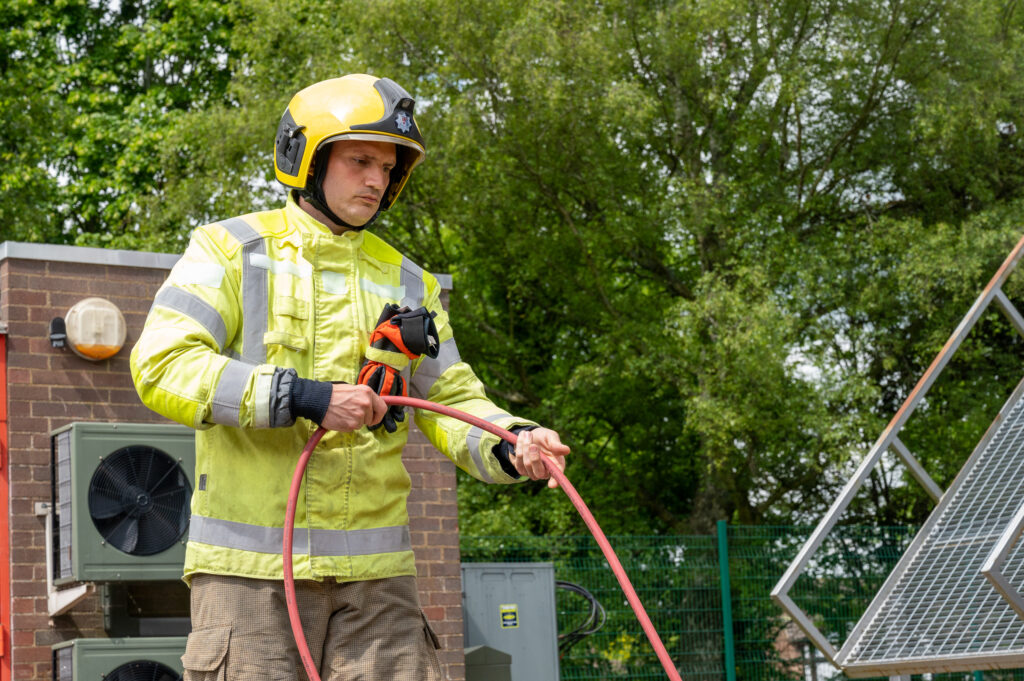
4pm – Gym session
It’s important for firefighters to stay fit and healthy in order to be able to perform at the peak of their abilities.
Daventry, like most stations, has gym equipment for crews to use. One of the more popular additions is also a table tennis table, which adds some light-hearted competitiveness between crew members as well as providing a good workout.
5.30pm – Call to sheltered housing accommodation
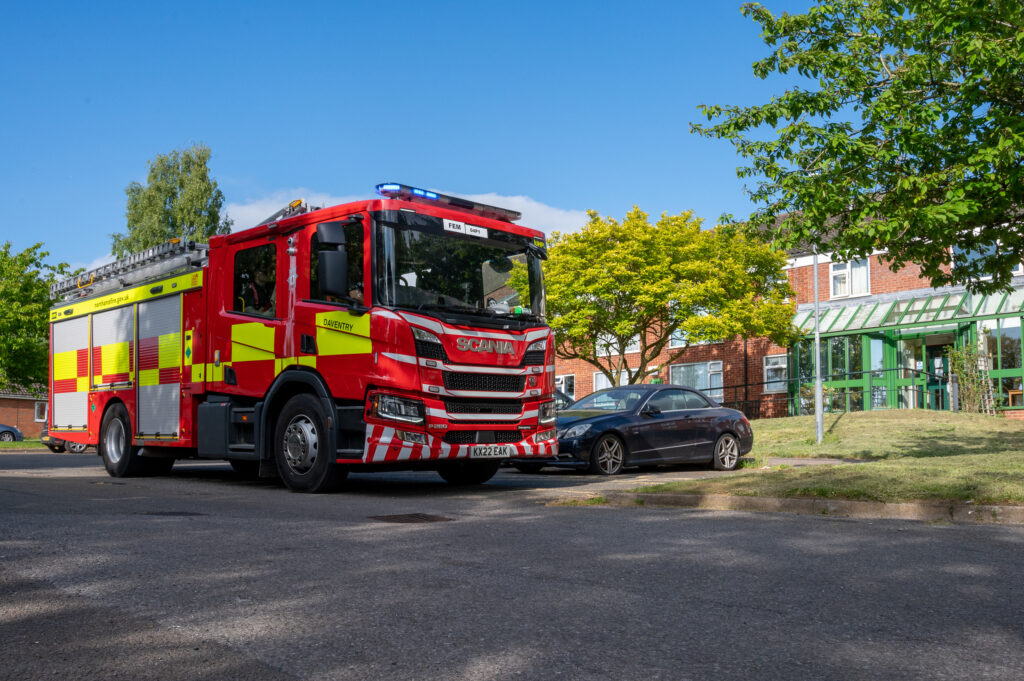
Not long before their shift is due to end, the crew is called to deal with a fire alarm that is going off at a sheltered housing building in Long Buckby. Within seconds of getting the call the crew are changed, on the engine and on their way.
En-route, Duncan Timbs explains that the destination has been one they have been called to a few times before. On arrival, it becomes clear that it’s a false alarm, as the alarm has been set off by cooking fumes.
The crew take the opportunity while there to ensure that all the alarms are working and hand over cooking advice to the occupants – they want to try and avoid coming back if they have to.
6.00pm – End of the day
On arrival back from the 5.30pm shout, it’s time to head home. Make no mistake though, if they get a call at 5.59pm they’re heading out to it, which means that sometimes they work beyond the end of the shift. It’s all part of the job though – that minute could make all the difference in a life-or-death scenario.
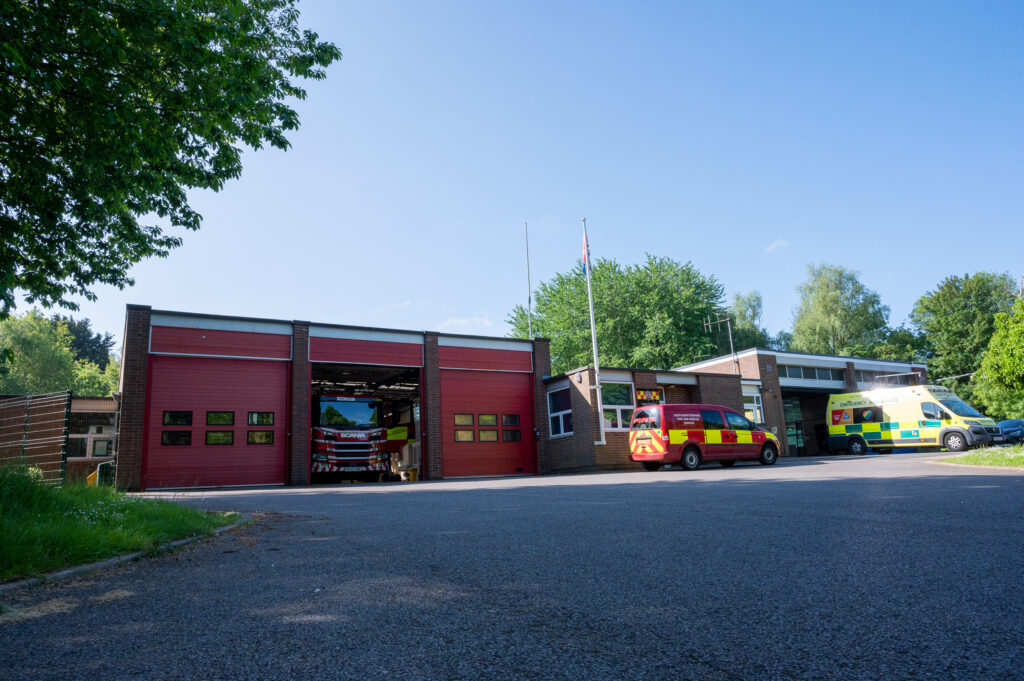
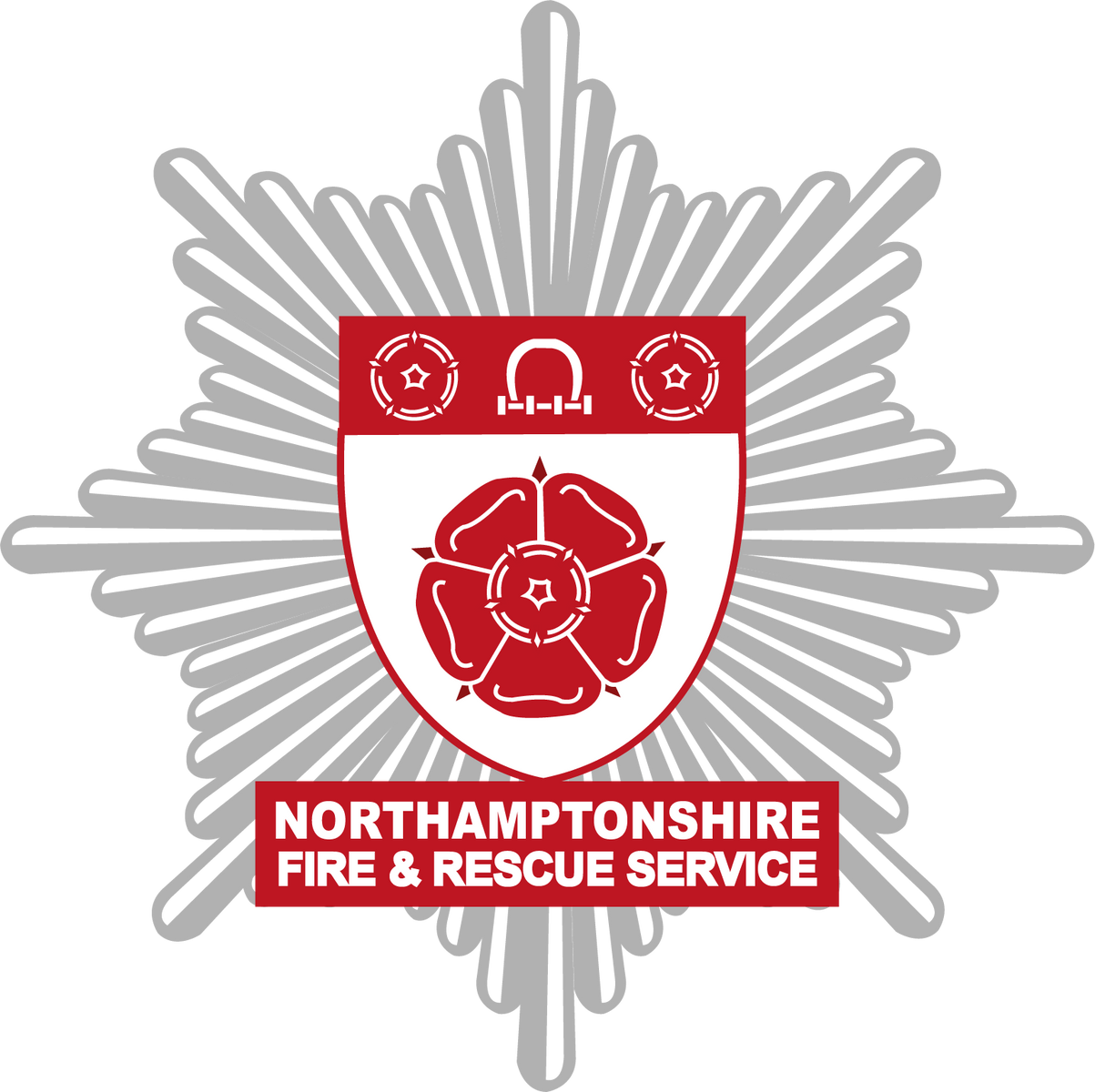

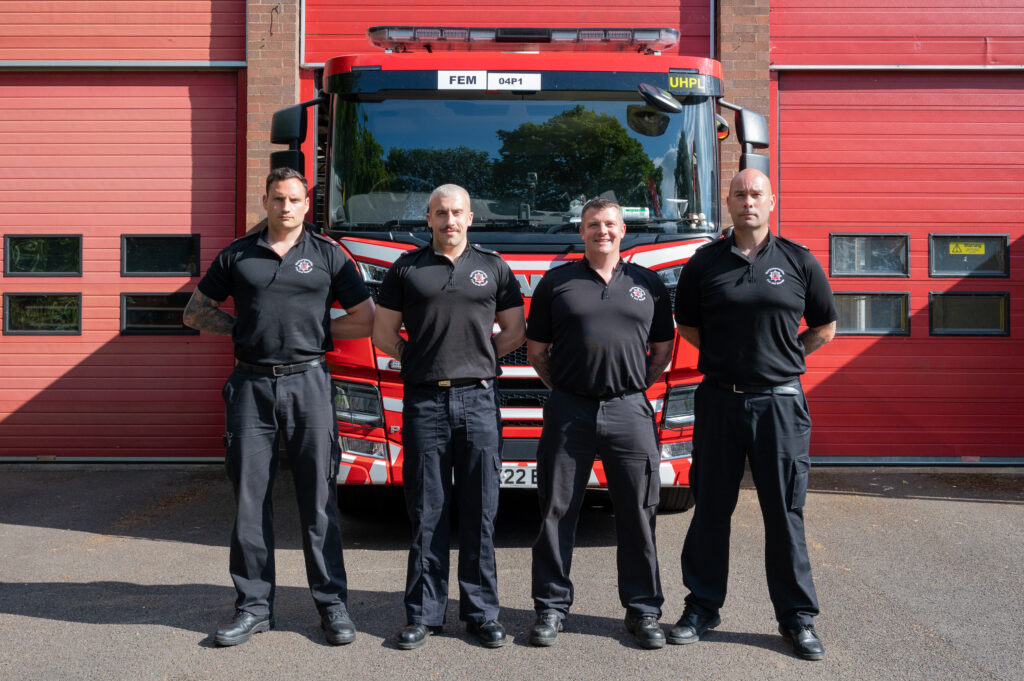





 Fire Risk Assessment (worked example for House in Multiple Occupation (HMO)) (PDF 389KB)
Fire Risk Assessment (worked example for House in Multiple Occupation (HMO)) (PDF 389KB)
